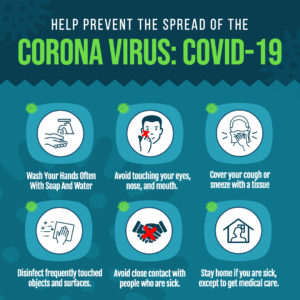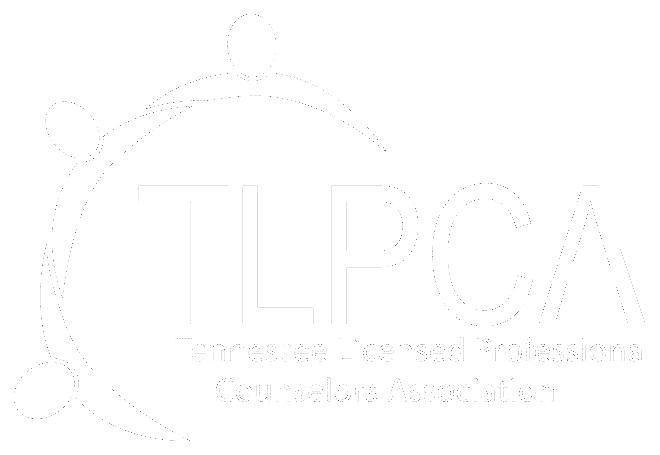COVID-19
Practitioner Resources
Training and Telehealth
- The Telehealth Certification Institute offers free webinars on telehealth, as well as a certification option.
- Telehealth Institute
- Distance Counseling Basics for Mental Health Professionals by Dr. Chris Quarto
- Ethics Rock is providing their $597 training on ethics of telehealth FREE until 3/23/20.
- COVID-19 and Private Practice
- Pesi is offering Telehealth for Mental Health Professionals: 2-Day Distance Therapy Training (Digital Seminar) free for a limited time. Use code: TELEFREE
Telehealth and the Law
- Tenn Code Ann
- Telemental Health Laws App enables you to learn what the laws are state-by-state for
counselors conducting telehealth
Telehealth Platforms
- Doxy.me – Doxy.me is a cloud-based electronic medical records (EMR) and telemedicine solution designed for practices of all sizes. Doxy.me is a HIPAA-compliant, and Android and iOS apps are available for mobile devices. The product also features a live chat within the telemedicine interface. A Professional account for individual providers is available for $35 per month, which includes the ability to screenshare with clients and to conduct group sessions.
- Simple Practice –SimplePractice gives Behavioral Health Therapists the tools to run great businesses. With an interconnected platform for billing, scheduling, documentation, and client communication, you’ll be able to get organized and grow your practice. Pricing include $35 for basic or $59 for Professional Plan.
- TherapySites – TherapySites integrates professional website design, hosting and content that is HIPAA compliant. The all-inclusive solutions come bundled with tools that make it simple for practitioners to manage their websites. The package includes an intuitive content management system that ensures users can make changes and keep their site current with helpful information for clients. All-inclusive package is $59 per month.
- Zoom – Many counselors get a free Zoom account, having heard that Zoom is HIPAA-compliant, but unfortunately a free Zoom account is not HIPAA-compliant. However, Zoom Healthcare is HIPAA compliant but costs $200 a month (for up to 10 users), which may be a more appropriate tool for agencies vs. individual practitioners. It might be possible to talk with the Zoom sales team to lower the monthly fee.
Telehealth and Ethics
- American Counseling Association (ACA) – The ACA Code of Ethics (2014) Distance Counseling, Technology, and Social Media (Section H) was developed to provide ethical guidelines that focus on how to ethically use technology and social media within the field of counseling. Specifically,
the Code recommends the following: (a) Be knowledgeable about the laws governing distance counseling and social media; (b) utilize distance counseling after gaining competence through training and supervised experience in this specialty area; (c) Inform clients about the limits of confidentiality and potential Internet interruptions due to the nature of technology; (d) Understand the benefits and drawbacks related to distance counseling; (e) Utilize a professional presence if they choose to use social media platforms; (f) Avoid disclosing confidential information through social media; and (g) Utilize informed consent to explain the boundaries of social media. - American Mental Health Counselors Association (AMHCA) – The AMHCA Code of Ethics (2020) focuses on the specific requirements for the ethical practice of clinical mental health counselors (CMHCs). Section B.6. The Use of Technology Supported Counseling and Communications (TSCC) states:
CMHCs recognize that technology has become culturally normative worldwide and may employ modern technology communications judiciously, attentive to both the benefits and risks to clients and to the therapeutic process of using technologies to arrange, deliver, or support
counseling.
a. CMHCs understand that the uses of TSCC in counseling may be considered to fall under the following categories:
i. The use of TSCC as the medium for counseling, also called “telehealth” or distance counseling,” which includes but is not limited to the delivery of counseling by video call (e.g., internet, video chat), by voice (e.g., telephone), by synchronous text (e.g., chat or SMS), or by asynchronous text (e.g., email).
ii. The use of TSCC as an adjunct to counseling (i.e., for arranging, coordinating, or paying for counseling services), including the use of payment processing services that are integrated with TSCC (e.g. PayPal, Stripe, Zelle) for receipt of payment for counseling services.
iii. The use of online “cloud-based” services for the storage of counseling records
iv. Marketing, educational forums, and other TSCC to include blogs, webpages, chatroom, etc.
b. CMHCs recognize that federal, state, and local laws prevail and that the standard of care for TSCC is expected in the same manner as face-to-face and in-office counseling. Continuity of care is crucial and, at times, may conflict with local laws and regulations. CMHCs should employ a solid ethical decision-making model to secure continuity of care.
c. CMHCs are not required to provide services via TSCC or may decide not to offer service based on appropriateness.
d. CMHCs only provide telehealth or distance counseling when they have had sufficient training which can be gained through education, supervision, or other appropriate activities (see the TSCC section of AMHCA Standards for the Practice of Clinical Mental Health
Counseling in Appendix B of the “Essentials of the Clinical Mental Health Counseling Profession” text or online at www.amhca.org/publications/standards).
e. CMHCs need to be familiar with state laws and regulations in both the state in which the CMHC is licensed and the state in which the client is presently located.
f. At the beginning of a course of distance counseling, CMHCs acquire the contact information for emergency services in the location of the client and develop a procedure to follow in the event of a psychiatric or health emergency.
g. In states where there is a legal requirement that CMHCs must include in the client record client communications through TSCC, CMHCs inform the client of that fact.
h. Unless email and text messages are encrypted or otherwise secured or confidential, the client should be informed of the risks and discouraged from using as a means to disclose personal information.
i. Chat Rooms: Typically, unsecured, open chat rooms are discouraged as a platform for communicating with clients.
j. CMHCs may maintain professional profiles that are kept separate from personal profiles. CMHCs need to be aware of their impact on clients should personal information or opinions be disclosed in a public platform. When applicable, CMHCs educate clients on confidentiality, implications for client activity on these pages, and appropriate channels for contacting CMHCs.
k. CMHCs only seek information about their clients through internet searches for the purpose of determining their own or their client’s safety, as necessary to conduct a forensic evaluation, or at the client’s request. - AMHCA Standards for the Practice of Clinical Mental Health Counseling – The TSCC section of AMHCA Standards for the Practice of Clinical Mental Health Counseling in Appendix B of the “Essentials of the Clinical Mental Health Counseling Profession”
Professional Environments and COVID-19
- The CDC offers ways to help protect you and those around you
- Editable graphic on how to prevent the spread of COVID

- Graphic on how to wash hands in bathrooms
- Graphic to inform clients that if they have flu-like symptoms, they should not enter and
should instead call their physician - Apply social distancing rules during face-to-face sessions.
Clients and COVID-19
- COVID 19: Plan for Therapists: Questions, Answers, and Guidelines
- International OCD Foundation
- Taking Care of Your Behavioral Health During an Infectious Disease Outbreak
- Covid-19 (Coronavirus) Information and Resources
- AMHCA The Coronavirus and Covid19: Resources on What You Need to Know and for Your Families, Your Clients and Your Practice
- Recommendations for Health Care Providers in Managing COVID-19
- Dealing with Anger

